Wonkee Donkee’s lesson on electricity |
||||
| Shop for Multimeters | ||||
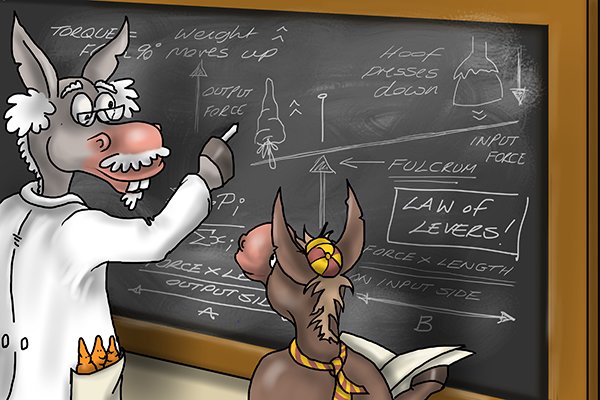 |
Just in case you have forgotten what your physics teacher taught you about electricity and circuits, here is a quick recap of the basics. |
|||
 |
||||
What is electricity? |
||||
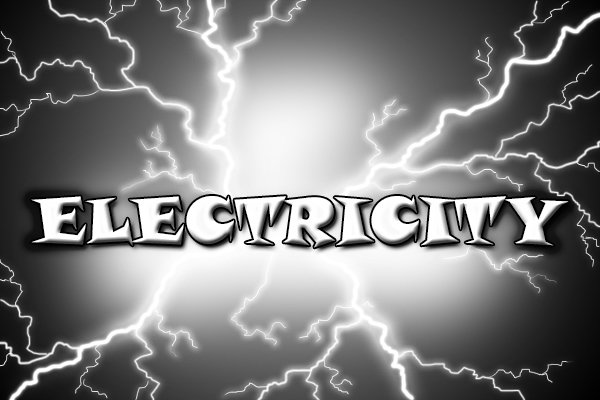 |
Electricity is a type of energy caused by charged particles. It can be static: a stationary accumulation of charge, or dynamic: a movement of charge creating a current. |
|||
What is a circuit? |
||||
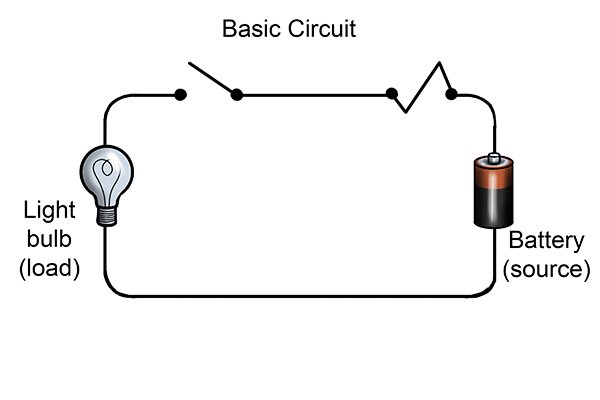 |
A circuit is a complete path for an electrical charge to pass through, and requires a power source and conductors to work. A circuit also contains electrical components such as light bulbs or any other electrically powered device.
Circuits can either run in series or in parallel. |
|||
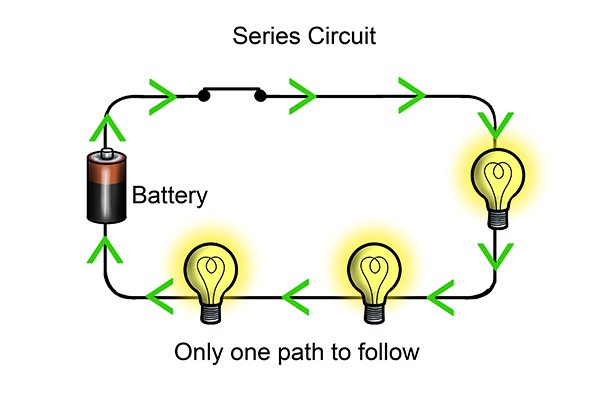 |
Series circuitsIn a series circuit, the current can only follow a single path, with all the components sitting alongside each other. If one component in a series circuit fails, then none of the components will work. |
|||
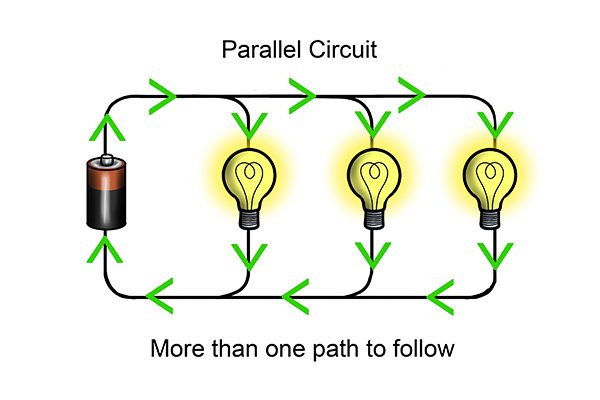 |
Parallel circuitsIn a parallel circuit, the current splits and travels along different routes to supply power to different electrical components. If one of the components in a parallel circuit fails, the circuit is not broken and the other components will continue to work. |
|||
Current flow |
||||
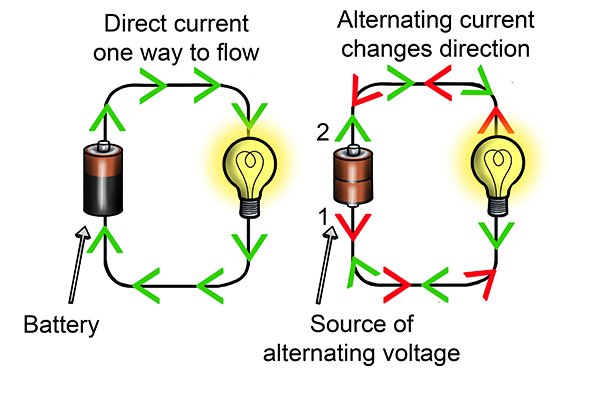 |
Electrical currents can either be AC or DC.
DC or ‘direct current’ is where the electrons move around the circuit in a single direction; this is the current found in batteries and cells.
AC or ‘alternating current’ is where the electrons move backwards and forwards; this is found in mains electricity. |
|||
Units of measurement |
||||
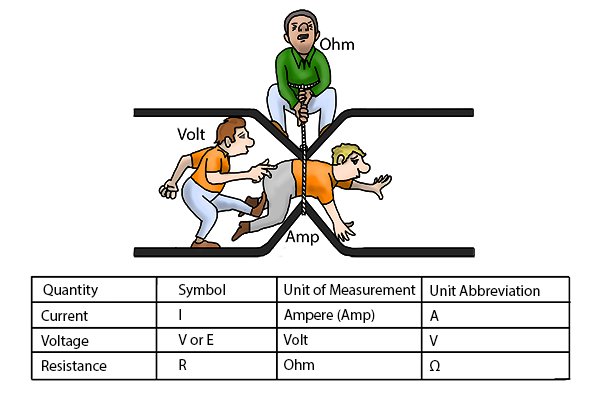 |
Amps, volts and ohms are typical units of measurement used to measure electricity.
Electrical currents are measured in amperes (amps, A), electrical potential is measured in volts (V) and resistance is measured in ohms (Ω). For more information, see: {{widget type=”cms/widget_page_link” title=”How can electricity be detected and tested?” template=”cms/widget/link/link_inline.phtml” page_id=”2107″}}
These are some of the units of measurements you will come across whilst using the various electricity detectors and testers. |
|||







